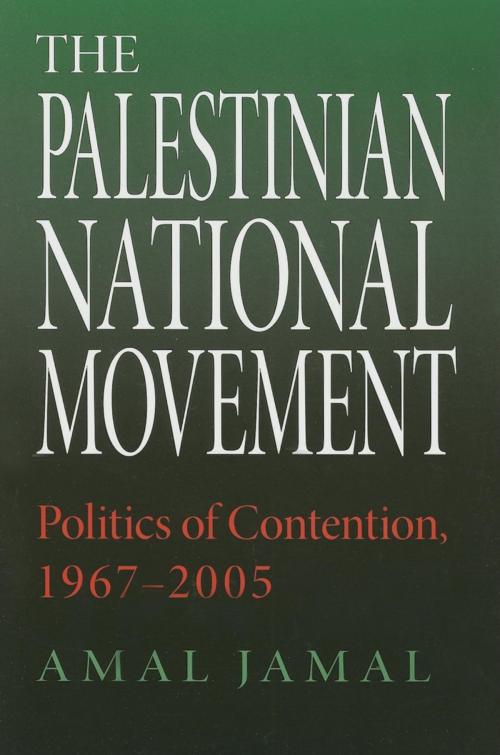The Palestinian National Movement
Politics of Contention, 1967-2005
Nonfiction, History, Middle East, Social & Cultural Studies, Political Science, International, International Relations| Author: | Amal Jamal | ISBN: | 9780253028389 |
| Publisher: | Indiana University Press | Publication: | June 8, 2005 |
| Imprint: | Indiana University Press | Language: | English |
| Author: | Amal Jamal |
| ISBN: | 9780253028389 |
| Publisher: | Indiana University Press |
| Publication: | June 8, 2005 |
| Imprint: | Indiana University Press |
| Language: | English |
"A comprehensive, up-to-date account of the dynamics in the Palestinian political arena." —Ann M. Lesch, Villanova University
This innovative study examines the internal dynamics of the Palestinian political elite and their impact on the struggle to establish a Palestinian state. The PLO leadership has sought to prevent the rise of any alternative in the West Bank and Gaza Strip that can challenge its authority to represent Palestinian aspirations for self-determination. Drawing on Palestinian sources and interviews with Palestinian political leaders, Jamal argues that the Fatah leadership has attempted to mobilize new social forces—local secular-nationalist and Islamist movements—while undermining their ability to develop independent power structures. This policy has served to radicalize the younger local elites, contributing to the tensions that precipitated the first and second intifadas. Israel’s policies have undermined the legitimacy of the national elite, while enhancing the Islamist opposition’s ideological legitimacy. In this way, internal elite disunity and growing political differentiation have worked against development of a common Palestinian strategy of state-building.
"A comprehensive, up-to-date account of the dynamics in the Palestinian political arena." —Ann M. Lesch, Villanova University
This innovative study examines the internal dynamics of the Palestinian political elite and their impact on the struggle to establish a Palestinian state. The PLO leadership has sought to prevent the rise of any alternative in the West Bank and Gaza Strip that can challenge its authority to represent Palestinian aspirations for self-determination. Drawing on Palestinian sources and interviews with Palestinian political leaders, Jamal argues that the Fatah leadership has attempted to mobilize new social forces—local secular-nationalist and Islamist movements—while undermining their ability to develop independent power structures. This policy has served to radicalize the younger local elites, contributing to the tensions that precipitated the first and second intifadas. Israel’s policies have undermined the legitimacy of the national elite, while enhancing the Islamist opposition’s ideological legitimacy. In this way, internal elite disunity and growing political differentiation have worked against development of a common Palestinian strategy of state-building.















